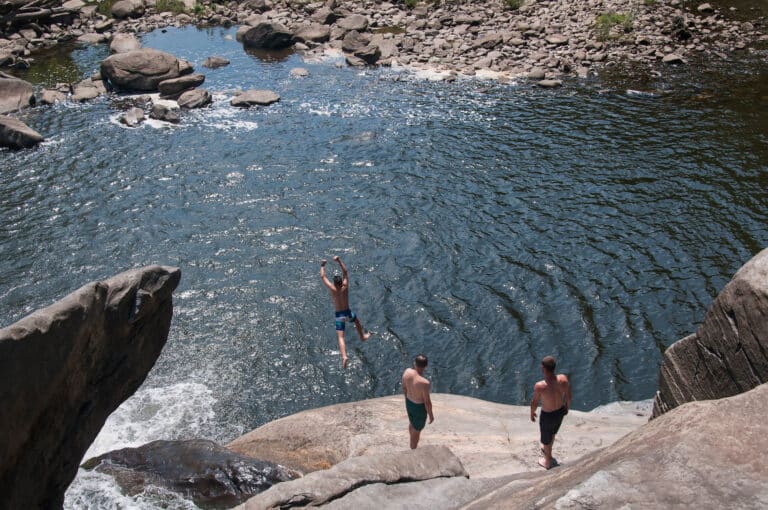U.S. Soldier Makes Podium at First Ever American Appearance at Military World Climbing Championships
When First Lieutenant Tyler Casey flew to Mitterdorf, Austria to compete in the Military World Climbing Championships, he wasn’t expecting much. Casey, a Dallas, Texas native who began climbing while in college at the University of Arkansas, was the first American soldier ever to compete in the international military climbing competition. The championships bring together climbers from the militaries of primarily European nations, including Germany, France, Poland and Switzerland. While America has long been competitive on the civilian international climbing scene, military climbing is new for the U.S. Still, after the semi-finals, Casey was in the lead. A few slip-ups in the finals cost him the win, but he came away with a 3rdplace finish. “Everyone was really excited to see an American in the competition. I don’t think they expected an American solider to climb well.” Casey told Rock and Ice. “There were definitely some shocked people.”
Coal Plant Closings Double in Trump’s Second Year
Despite Trump’s claim to end the ‘War on Coal,’ U.S. utilities continue to close coal-fired power plants and in 2018 the pace of closure doubled. This year, utilities will retire 14.3 GW of coal-fired power plant capacity, up from 7 GW in 2017 and just slightly below 2015 closures of 14.8 GW. Looking forward, another 22.9 GW of coal plant retirements have already been announced or received regulatory approval for 2019 through 2024. Utilities cite a variety of reasons for the plant closures including higher costs, aging plants, future regulatory uncertainty and public sentiment around coal and its contribution to climate change.
Climate change might rob you of your favorite beer
A report published in Nature Plants warns that beer—the most popular alcoholic beverage in the world—could see lower consumption and higher prices by the end of the century due to climate change. Researchers working on the study took a close look at barley, a main ingredient in beer, and found that yields “decline sharply in periods of extreme drought and heat.” Roughly a fifth of the world’s barley goes to beer making, but the study points out that as droughts and heat events intensify, a lower barley yield will impact a “luxury good” like beer. The study’s climate scenarios showed a global average yield loss between 3 to 17 percent and projected that the price of beer would rise as a result. The beer and barley industries, however, are not losing sleep over the findings. In a blog post, the Boulder-based Brewers Association pointed out that U.S. barley yields have increased over the last 80 years and will continue to do so. The report does point out that North American barley yields will improve in a changing climate, “but not enough to offset the global decrease.”








